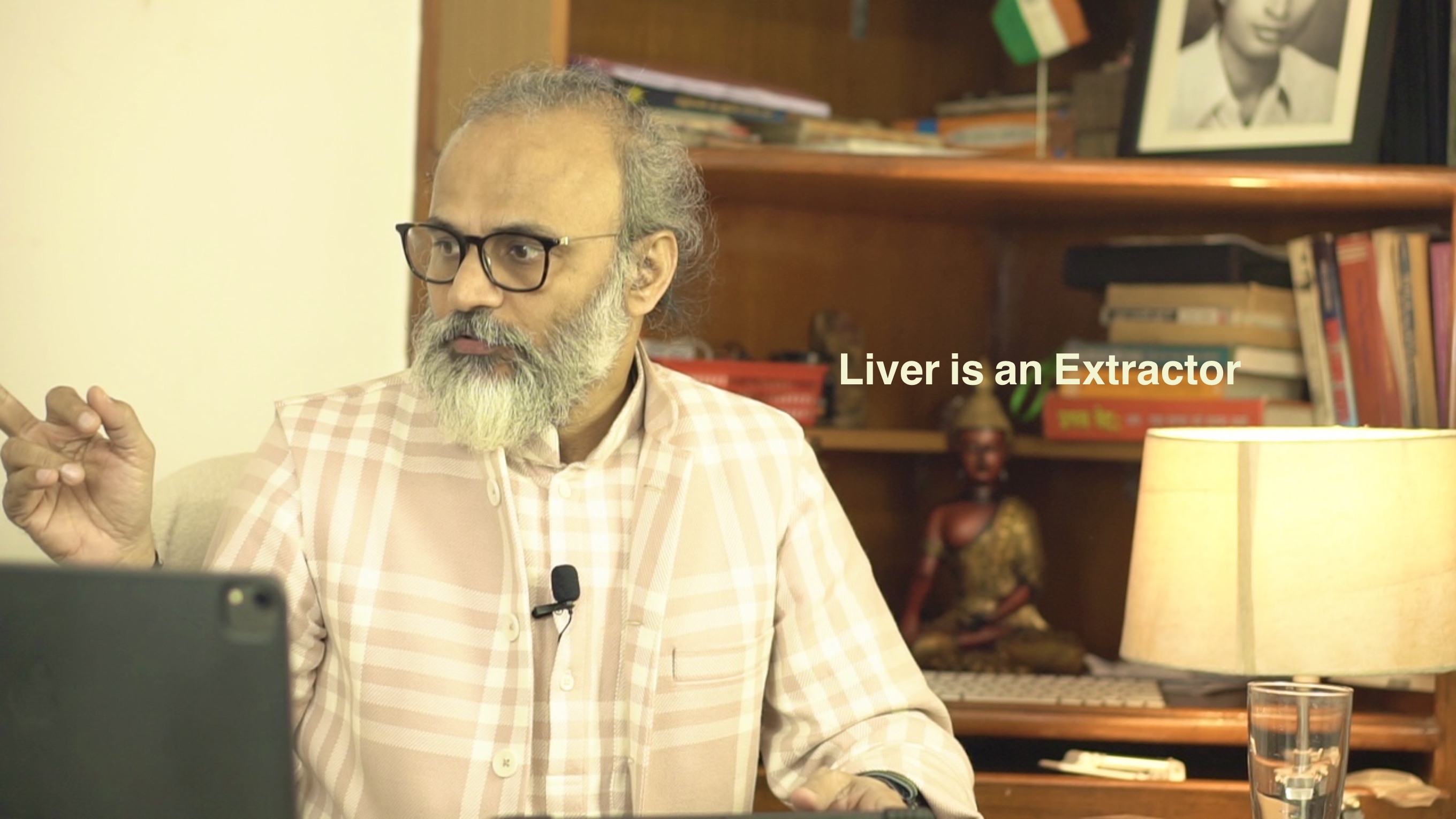
Liver is an Extractor
1 year ago By Yogi AnoopAnimal Meat, Plant Sources, and Liver Function in Human Nutrition;
1. Student: Why do most people who eat meat believe that animal meat provides sufficient fat and protein?
Yogi Anoop: Many meat-eaters believe this because animal meat is traditionally considered a concentrated source of both fat and protein. It's a common dietary belief passed down through generations. However, the issue is that animals don't consume meat for their fat and protein; they primarily eat vegetarian meals such as green grass.
2. Student: Where do these animals (that humans eat) derive their fat and protein from?
Yogi Anoop: These animals primarily derive their fat and protein from their diets, which consist of green grass, hay, oil cakes, and bran. These sources are rich in nutrients necessary for animal growth and development. If animals don't eat meat for fat and protein, why do humans consume their meat for these nutrients?
3. Student: Do grains and seeds contain protein and fat?
Yogi Anoop: Yes, grains and seeds do contain protein and fat, which are essential nutrients for both animals and humans. These nutrients are derived from the plant materials themselves. However, the fundamental issue is that humans desire to obtain fat and protein directly from animals, even though the human liver is not specifically designed for meat digestion; it's a matter of taste and preference.
4. Student: Where do non-carnivorous animals like goats, cows, buffaloes, and chickens get their fat and protein from?
Yogi Anoop: Non-carnivorous animals obtain their fat and protein from the plants they consume. For instance, goats primarily eat leaves, which provide them with essential nutrients, including fat and protein. Similarly, the human liver efficiently processes fat and protein from plant sources like seeds.
5. Student: How does milk from herbivorous animals contribute to human nutrition, particularly through liver processing?
Yogi Anoop: When humans consume milk, their liver processes it and extracts ghee (clarified butter) from it. Ghee contains essential fats and nutrients beneficial to human health. In my view, indirect intake of fats and proteins, such as through milk, is healthier than direct sources like ghee or oils.
6. Student: Why is it suggested to provide ghee or fats indirectly to the liver rather than consuming them directly?
Yogi Anoop: It's recommended to provide fats indirectly to the liver because the liver is adept at extracting nutrients from whole foods, such as seeds and grains, rather than from processed oils. This aligns with its natural function as an extractor.
7. Student: How does the liver's ability to extract fat from dry seeds compare to its function when supplied directly with oil?
Yogi Anoop: The liver's ability to extract fat from dry seeds is more aligned with its natural function, akin to how a cold-pressed juicer extracts nutrients from raw materials. Directly supplying oil bypasses this natural process and may overload the liver.
8. Student: In what way does the liver resemble a cold-pressed juicer in its nutrient extraction process?
Yogi Anoop: The liver resembles a cold-pressed juicer because it efficiently extracts nutrients, including fats, from whole foods like seeds and grains. It processes these nutrients gradually and effectively for the body's use.
9. Student: What are the potential consequences of providing the body with too much direct fat?
Yogi Anoop: Providing the body with excessive direct fat, such as through oils, can lead to inflammation and increase the risk of acid reflux. This occurs because the body may struggle to process and utilize isolated fats effectively.
10. Student: Under what circumstances might patients be prescribed oils, and why should this be done sparingly?
Yogi Anoop: Patients may be prescribed oils in specific medical situations or for therapeutic purposes. However, this should be done sparingly to avoid overloading the body with fats that could potentially lead to health complications like inflammation.
Note -This conversation is Yogi Anoop’s insights based on his spiritual knowledge and understanding of the body's natural processes.
Recent Blog
Copyright - by Yogi Anoop Academy
